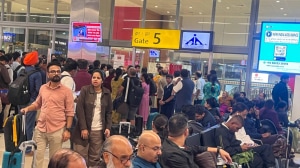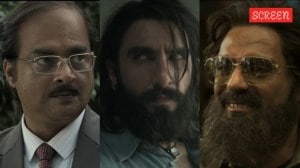SC verdict just beginning: Police reform crusader
Unlike most IPS officers, for whom their tenure is the time to make a difference, Prakash Singh just couldn’t wait to shed his uniform to do something worthwhile.

Unlike most IPS officers, for whom their tenure is the time to make a difference, Prakash Singh just couldn’t wait to shed his uniform to do something worthwhile. After retiring as Director General of BSF in 1994, he petitioned the Supreme Court in an effort to clean up the stink in the country’s police force. Thirty-five years of service had given him enough insight into the politicisation, corruption and criminalisation of the force. The going was tough initially as the case dragged on for a decade, but finally the apex court on Friday gave the go-ahead for ushering in sweeping reforms in the police establishment.
“The judgment is far-reaching and will go a long way in transforming the police into a people-friendly force. In one stroke, the court has demolished the 145-year-old colonial structure of police,” Singh said. He expressed confidence that honest officers will now feel emboldened to stand up and say no to politicians and uphold the rule of law. But he cautioned: “It will not be a push button start but a slow and steady change.”
“Even as a police officer, I used all available forums to push for reforms. But then, I realised that the political executive had a vested interest in maintaining a status quo. I came to the conclusion that the judiciary was the only hope. But the service code of conduct was coming in the way. So I decided to wait till retirement,” says Singh, who was awarded the Padmashree in 1991 for his contribution in combating terrorism in Punjab.
“It was a pressing task. I personally drafted every single page of the petition. Once the hearing began, there were periods of severe frustration. For five years, nothing moved and only dates were fixed. But then former Chief Justices J S Verma and R C Lahoti and current Chief Justice Y K Sabharwal took a special interest in the matter and the results are here to see.”
Singh says that by the end of his tenure, he was convinced that India required a police force with a different working philosophy. “Even the National Police Commission observed that the only thing Independence did to India’s police was change the political bosses. There was no change in the attitude.”
The officer in him remembers the occasions when his own political masters shunned him unceremoniously. “The first time it happened was when I was DIG, Meerut. I was thrown out for no fault. The Union Home Minister communicated my suspension order orally to the UP CM. But some divine intervention saved me.”
“The next time it happened in 1992 when I was DGP, UP. I was shown the door though I had not committed any mistake. But soon, the Ayodhya incident happened and my services were requisitioned again.”
“The third incident happened when I was DGP, Assam, where I was sent to ensure peaceful polls given ULFA’s looming threat. The elections passed off peacefully. But the new government started releasing ULFA cadres from the jail without informing me. They also started interfering in appointments. When I protested, I was moved back to UP,” recalls Singh.
But is it now time to rest? Not yet, feels Singh. “There are several ifs. I will not be surprised if vested interests try to throw a spanner in the works or at least delay implementation of the directions. There is a section which is corrupt, politicised and even criminalised. They will have to be neutralised,” he says.
- 01
- 02
- 03
- 04
- 05































